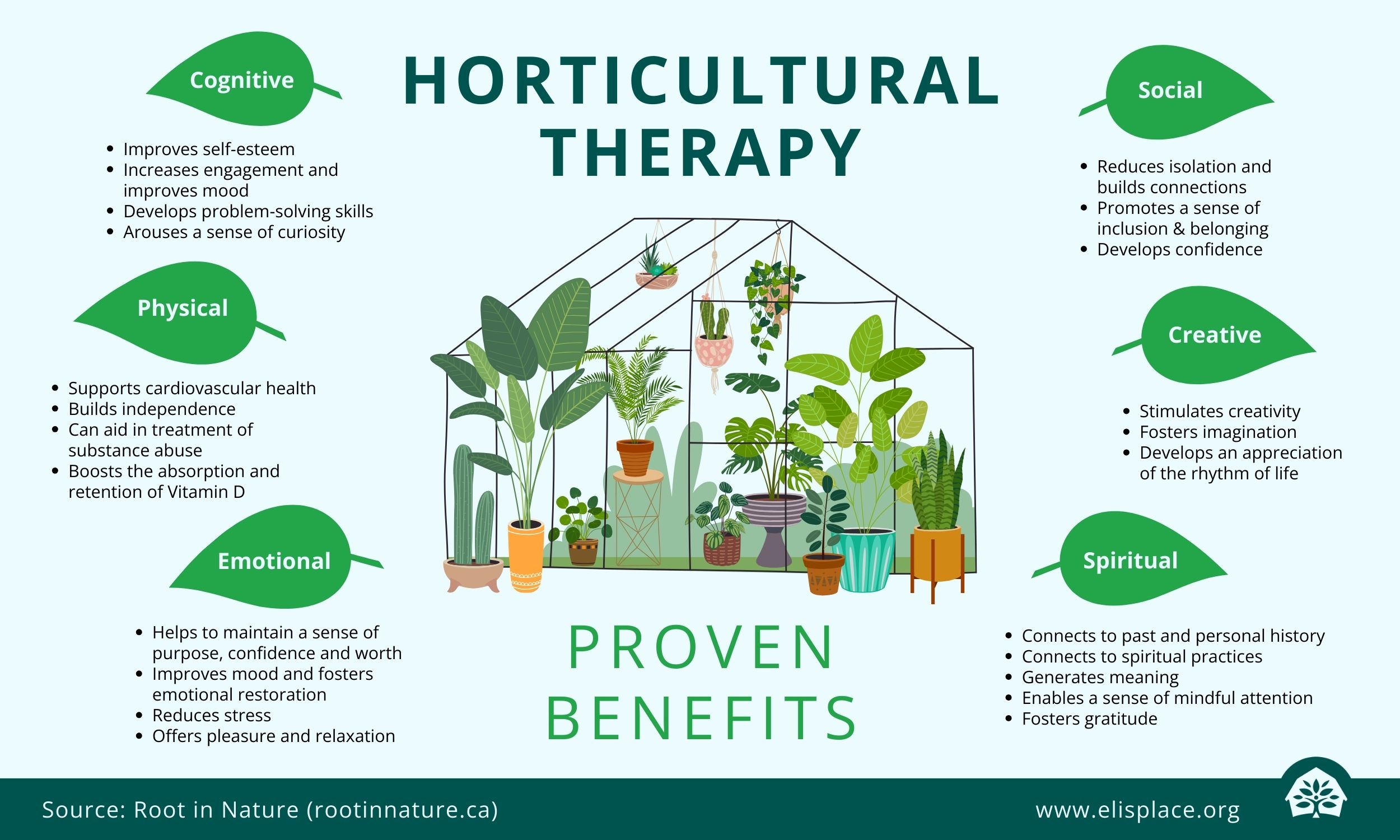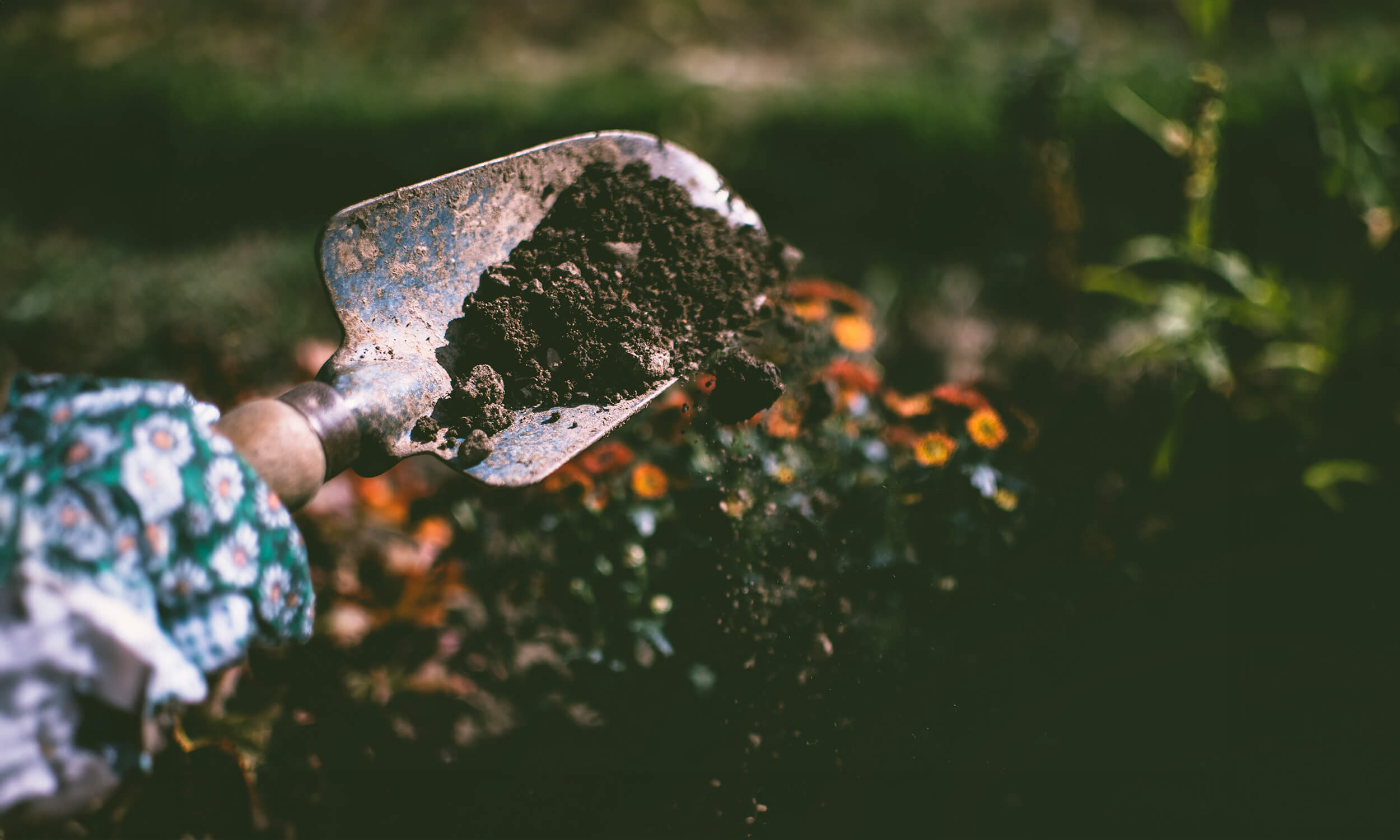Horticultural therapy, a unique fusion of nature and therapy, has emerged as a profound tool for improving the physical, mental, and emotional well-being of individuals. As I share my journey, I aim to illustrate the remarkable potential of this nature-based therapeutic approach.

Physical Health Benefits
Throughout my career in horticultural therapy, I’ve witnessed numerous individuals experience significant improvements in their physical health. Gardening activities have proven to be particularly effective in enhancing motor skills, balance, and coordination, especially among older adults. In my work, I often recall a study published, the Journal of Aging and Physical Activity by Lindsay S. Nagamatsu and Patricia C. Heyn highlighted the remarkable gains in grip strength, dexterity, and overall physical functioning in older adults who engaged in horticultural therapy.
Some mental illnesses such as depression, also have a direct impact on one’s physical health. Extreme fatigue and overall body aches can be very common symptoms. Gardening activities can have a very positive impact on physical functioning similar to those noted in connection to aging.
Moreover, the connection between green spaces, plant engagement, and the reduction of stress and blood pressure cannot be understated. I’ve seen remarkable transformations in individuals who simply spent time in nature. A study conducted at the University of Michigan found that individuals who spent time in nature exhibited lower levels of cortisol, a hormone associated with stress, compared to those in urban environments. Similarly, research published in the Journal of Environmental Psychology discovered that even brief encounters with nature, such as tending to plants, can significantly lower blood pressure and increase feelings of relaxation.

Mental Health Benefits
In my years as a horticultural therapist, I’ve been privileged to witness the profound impact of gardening on mental well-being. Engaging in gardening activities has consistently led to improved self-esteem and mood among participants, aligning with research conducted by the University of Exeter. The remarkable increase in self-esteem and reduced feelings of depression and anxiety following horticultural therapy sessions underscores the therapeutic potential of this approach.
Additionally, horticultural therapy has emerged as a powerful tool in addressing various mental health conditions. A systematic review in the International Journal of Environmental Research and Public Health reinforces the efficacy of horticultural therapy interventions in reducing symptoms of depression and anxiety among individuals with mental health challenges. The calm and soothing effects of nature play a significant role in promoting relaxation and emotional well-being, aligning perfectly with the essence of horticultural therapy.
Working in a community garden has increased benefits for those with mental illness as cited in this study. The communal aspect helps to build social connections in addition to the benefits of gardening. One of the longest running horticultural mental health recovery programs is Bridewell Gardens in Oxfordshire, England. In Canada, horticultural therapy is also taking off with initiatives and training led by The Canadian Horticultural Association (CHTA).
My journey has also involved working with individuals on the autism spectrum. I’ve seen firsthand the positive impact of horticultural therapy on social skills, communication, and sensory processing in children with autism, mirroring the findings of research published in the International Journal of Autism.

Social and Emotional Benefits
One of the most rewarding aspects of my career has been witnessing the social and emotional benefits of horticultural therapy. It provides individuals with unique opportunities for social interaction and emotional expression. The sense of belonging and increased social integration resulting from community gardening projects, as discovered in a study by People Place and Policy, is something I’ve seen time and time again.
Horticultural therapy also serves as a powerful outlet for emotional expression and stress relief. My experiences align closely with the research published by the American Horticultural Therapy Association which emphasizes the role of gardening activities in reducing anger, tension, and fatigue while enhancing positive emotions and feelings of accomplishment.



Conclusion
Gardening is unique among other therapies, says Sue Stewart-Smith, the author of The Well Gardened Mind, The Restorative Power of Nature, as it encompasses: “… the emotional, physical, social, vocational, and spiritual aspects of life.”
My journey through horticultural therapy, spanning two decades in various mental health and gerontology settings, has reaffirmed the remarkable potential of this nature-based therapeutic approach. From improving physical health to enhancing mental well-being and fostering social connections, the healing power of gardening and nature-based activities is undeniable.
These experiences, supported by empirical research, underscore the unique and effective role horticultural therapy plays in promoting overall well-being. By harnessing the therapeutic potential of plants and nature, individuals can find solace, healing, and personal growth, enriching their lives through the nurturing act of gardening.
Eli’s Place will be a rural, residential treatment program for young adults with serious mental illness. To learn more about our mission and our proven-effective model click here.





